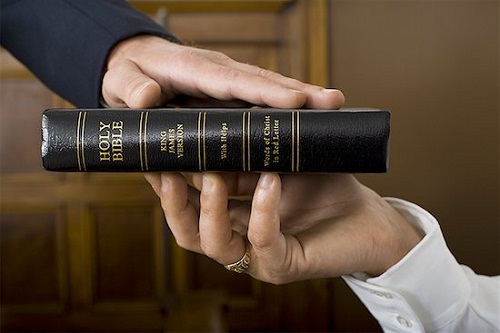Take Affidavits (other than for the courts in Ireland)
An affidavit is a written sworn statement from a witness in a case. It is a document that sets out in paragraph form the evidence that the witness wishes to give. Affidavits are usually written and prepared by a legal representative such as a lawyer, a solicitor or barrister after having obtained all the necessary information from the witness. The wording used in the affidavit will depend on the circumstances of the case. Your legal representative can give you more information on the wording that will be used.
 Affidavit Notary Public in DublinWhen the affidavit is ready, the witness must go before the Notary Public. The Notary Public will check that the person swearing the oath has read the affidavit and fully understands the contents. The witness will be asked to raise the Bible and to repeat the words of the oath. If the witness does not wish to swear an oath on the Bible, he or she may make an affirmation. He or she will then sign the affidavit.
Affidavit Notary Public in DublinWhen the affidavit is ready, the witness must go before the Notary Public. The Notary Public will check that the person swearing the oath has read the affidavit and fully understands the contents. The witness will be asked to raise the Bible and to repeat the words of the oath. If the witness does not wish to swear an oath on the Bible, he or she may make an affirmation. He or she will then sign the affidavit.
The Notary Public will verify that the affidavit was properly sworn by completing a "jurat" on the affidavit. It may then be submitted as evidence to the court by lodging it in the appropriate court office and sending a duplicate to the other party in the case.
Some cases do not involve an oral hearing with witnesses giving evidence in court. Those cases may be dealt with by affidavit only. For example, if the Plaintiff issues a summary summons, it will be accompanied by an affidavit setting out the facts of the case. The Defendant may then respond by affidavit. The judge may be able to decide the case by simply reading the affidavits. This is a swifter and less expensive procedure.
Rules regarding Affidavits
An affidavit must contain the following information
- The title of the case
- The identity of the person making the affidavit and the capacity he or she is acting in. It must state that the witness is over 18 years of age.
- It must be stated in the affidavit that the witness is making the affidavit from facts within his/her own knowledge and that where it appears that he or she is giving evidence on something outside his/her personal knowledge, he or she believes those facts to be true.
- The evidence that the witness gives must be set out clearly in paragraph format. The language is less formal that the language of formal pleadings.
- The affidavit must be dated and signed by the witness.
- The affidavit must contain a "jurat", which is a section where the Notary Public verifies that the affidavit was properly sworn.
